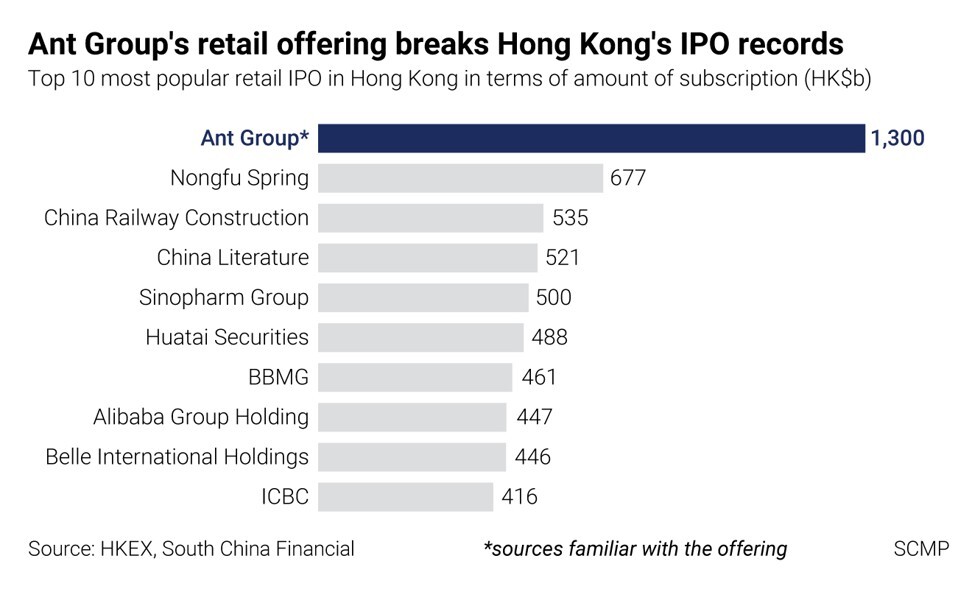
Ant Group’s chairman Eric Jing breaks silence after halt in largest global IPO with a corporate ‘check-up’ and rehabilitation plan
- Ant has conducted a comprehensive self-review, akin to a ‘body check-up’
- Ant Group’s Eric Jing promises to align business with national development priorities in the next five years and pledges greater transparency
Ant Group has conducted a thorough review of its operations and will fully align itself with national-development priorities across the next five years, said executive chairman Eric Jing in his first public comments since Chinese regulators suspended the firm’s US$37 billion initial public offering.
“If you’re going to be disruptive in such a heavily regulated industry as finance, there is a duty of care to be transparent,” said former IBM executive Richard Turrin, who is writing a book on fintech in China. “Jing’s comments are exactly what the market needs to hear, and they are Ant Group’s first step in getting its IPO back on track.”

Jing, who is also a major shareholder in Ant Group, said that the operator of China’s largest payments app, Alipay, has been managing the aftermath of the failed listing plan during the past month, under the guidance of the regulators.

“Fintech is a winner-takes-all industry”, said Guo Shuqing, chairman of the China Banking and Insurance Regulatory Commission (CBIRC), earlier this month. “With the advantage of data monopoly, Big Tech firms tend to hinder fair competition and seek excessive profits”.
In what appears to be a recognition that even privately owned companies must put the public good before shareholder returns, Jing said the company’s “goal is to make financial services not only more accessible but also at lower costs for our clients”.
Regulators fear that the dramatic shift online may destabilise financial systems and their backlash is gathering pace. The University of Cambridge surveyed 118 authorities, and almost three-quarters of them said they had accelerated or introduced initiatives on digital infrastructure this year, while 58 per cent said they had boosted regulatory and supervisory technology.
China traditionally allowed start-ups to flourish and experiment with business models as they furthered the government’s goal of spreading financial services in rural regions. To be sure, there were periodic crackdowns, such as on peer-to-peer lending in 2016.
This time around, China is leading a broad assault on the industry, stamping out monopolistic behaviour and fending off systemic risks.
“It’s the right time for Ant Group, and Alibaba in general, to be contrite and make sure their business model is towing the line,” said Zennon Kapron, founder of Asian financial services research firm Kapronasia.

Analysts said regulators would respond positively to Jing’s reassurance about becoming more transparent.
“Transparency in digital finance in China has been lacking over the past decade as the industry has developed and a key aim of the government has been to increase transparency so that they can better manage fiscal and monetary policy,” said Kapron.
To be sure, there was much in the speech that pointed to business as usual. Jing vowed to keep Ant Group at the cutting edge of fintech by continuing to invest in cutting-edge fundamental technologies, such as databases, blockchain, smart risk control and smart security.
Ant Group will also continue to focus on serving small and micro enterprises and business owners, and providing digital financial services to support the development of agriculture, rural regions and farmers.
“Eric Jing is committing to greater transparency with both the regulators and banks. This is not to say that Ant will stop being innovative,” said Turrin.



